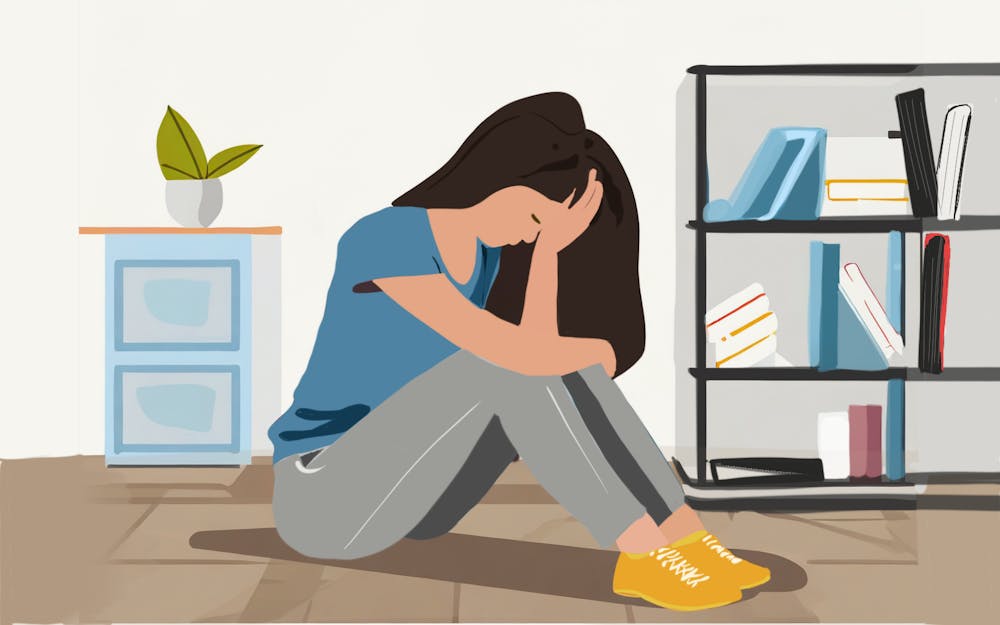Amidst the craze of midterms, times of political uproar and my looming graduation, I’m experiencing an unprecedented amount of anxiety, difficulty concentrating and a lack of motivation to work on assignments. I’m tired and dread going to class everyday. While this level of burnout can seem scary, it’s a pervasive problem affecting a lot of the working population.
According to Psychology Today, burnout is a state of exhaustion caused by prolonged stress. While it’s most often associated with work, it can also appear as a result of stress from school, social relationships and financial burdens. Key signs of burnout include depression, cynicism and lacking energy.
Burnout can even have physical effects on the body. Trouble sleeping, stomach aches or headaches, weight gain and muscle pain are just a few physical symptoms of burnout that most often plague people who experience repeated stress.
My own burnout is usually associated with a perceived lack of control. Academically, I’m stuck in a web of assignments that won’t go away. College requires students to maintain a consistent output of work to prepare us for a myriad of industries after we graduate, and I understand I took on the responsibility of completing that work when I enrolled here. However, I can’t help feeling like the heavy workload I juggle is too overwhelming — even if it’s what I signed up for.
Most mornings, I wake up at 5 a.m. to do homework until my first class at 9:45 a.m. After classes, I hang out by the Indiana Memorial Union fireplace and work tirelessly to catch up on readings, finish up assignments and check my email. I don’t have much time to see friends, watch television or dedicate precious time to extracurriculars. And all this constant work does is make me feel more exhausted, less motivated, angry and physically fatigued. The quality of my work also plummets significantly when I feel extra stressed.
This lack of control even seeps into my engagement in politics. When I look at the current political climate in the U.S., all I feel is misery and hopelessness. With a presidential election on the horizon, the lack of a really strong potential leader makes me feel as if it doesn’t even matter who wins. Will the federal minimum wage finally go up? Will our country codify abortion rights? Will the U.S. Government finally call for a ceasefire in Gaza? If history repeats itself, probably not! This utter lack of progression makes me want to pull away from politics altogether.
While burnout can feel unmanageable at times, it’s crucial to know how to cope with prolonged stress. Most importantly, it’s essential to know you’re not alone. For those experiencing political burnout, it can be comforting to know how many Americans feel bad about the current state of our politics. According to the Pew Research Center, nearly two-thirds of Americans say they always or often feel exhausted when thinking about politics, while over half feel angry.
It’s also good to know that burnout isn’t your fault. Under a capitalist system, the interest in keeping costs low and production high often results in worker exploitation. The imposed significance on productivity can also lead a person to experience internalized capitalism, where one sees a direct link between their self-worth and ability to perform at work. Internalized capitalism pushes people to feel guilty for resting, even if the constant pressure to work leaves them feeling exhausted.
While there is no one-size-fits-all way to escape feelings of burnout, self-care and a better work-life balance can offer temporary relief. Work should never define you, so it can be helpful to find the meaning in the other areas of life. Prioritizing time with loved ones, setting aside a couple hours each night to recharge and taking time off can ease the stresses of work tremendously.
As someone who struggles with feelings of burnout, though, it’s just not enough to tell a stressed person they should take time for themselves. Sometimes, taking time off is impossible. We as a society need to call out the workplaces, educational institutions and governments that perpetuate toxic environments where people are pushed to prioritize work over themselves. Until then, I fear these feelings will persist again and again.
Erin Stafford (she/her) is a senior studying journalism with a minor in English.






